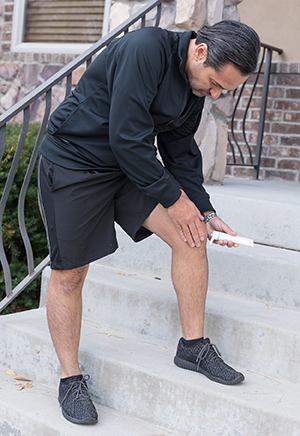Osteoarthritis Medicine
Pain from osteoarthritis can interfere with your life in many ways. It can make it hard to be active and take good care of yourself. Untreated pain may cause sleep problems. It may also add to depression and anxiety.
Controlling pain involves life changes like weight management and exercise. Natural and alternative treatments for pain include the use of heat and cold, massage, and acupuncture. You may also want to try relaxation methods and counseling. Other medicines are available to help ease pain.
Over-the-counter medicines
Some arthritis medicines can be bought without a prescription:
-
Acetaminophen works for moderate pain and does not cause stomach upset. But it doesn’t ease swelling. You must talk with your healthcare provider before taking it if you have liver or kidney problems.
-
Non-steroidal anti-inflammatory drugs (NSAIDs) help ease pain and swelling. They include ibuprofen and naproxen. The use of NSAIDs can cause stomach and kidney problems as well as an increased risk for stroke and heart attack. It can also raise blood pressure. Don't take NSAIDs if you take medicines that thin your blood, such as warfarin. Talk with your healthcare provider first if you have heart problems or kidney or liver disease.
Prescription medicines
Some arthritis medicines need a prescription:
-
Prescription NSAIDs are stronger than over-the-counter NSAIDs. They reduce pain and swelling. Use of NSAIDs may cause serious stomach problems and easy bruising. They may also lead to heart, kidney, or liver problems. These medicines include nonselective NSAIDs, such as naproxen, diclofenac, and indomethacin. They also include selective NSAIDs, such as meloxicam and celecoxib. Selective NSAIDs are thought to have less of a risk of gastrointestinal side effects than nonselective NSAIDs.
-
Other medicines that may be used are duloxetine, tramadol, and opioids. These may be prescribed for some people based on certain factors.
Topical medicines

Topical medicines are those put onto the skin over the affected joint. They may be lotions, cream, sprays, ointments, or gels. They can be used along with some medicines:
-
NSAID creams may reduce swelling and ease pain.
-
Capsaicin cream is made from an ingredient found in chili peppers. It works by stopping production of a substance that helps send pain signals to the brain. It may cause a burning or stinging feeling when you first use it.
-
Other topical medicines ease pain by numbing the area where they are used.
Intra-articular medicines
Some people feel better after getting joint injections. These may be:
If a medicine doesn't work for you, another may help. If you have any questions or concerns about your medicines, talk with your healthcare provider.
Online Medical Reviewer:
Marianne Fraser MSN RN
Online Medical Reviewer:
Melinda Murray Ratini DO
Online Medical Reviewer:
Rajadurai Samnishanth Researcher
Date Last Reviewed:
4/1/2024
© 2000-2024 The StayWell Company, LLC. All rights reserved. This information is not intended as a substitute for professional medical care. Always follow your healthcare professional's instructions.